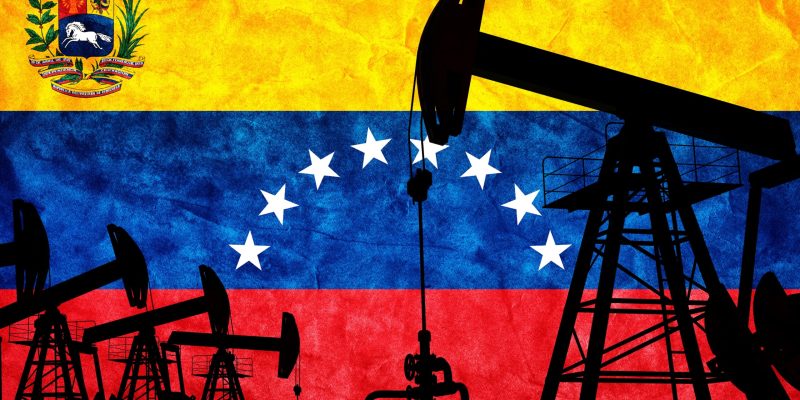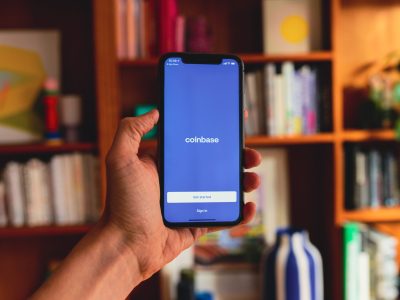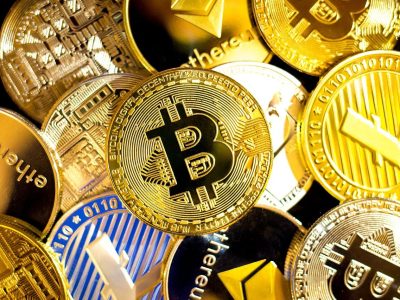
President Donald Trump said on Tuesday that his government is evaluating Chevron’s permission to produce and ship oil from Venezuela, amid tensions in American foreign policy with Latin America regarding energy resources.
Trump made this announcement during a press conference from his Mar-a-Lago residence in Florida, where he discussed several global issues.
When asked if he would reconsider Chevron’s decision to export crude oil from Venezuela, Trump stated that he would. “We are investigating, but the answer is most likely no. I’ve just arrived into presidency.”
“They were ready to fall apart when I left the presidency, and then (the) new president, (Joe) Biden, comes in and starts giving them millions and millions of dollars,” he stated.
This response highlights Trump’s ongoing criticism of Biden’s Venezuela policies, as well as the consequences on Maduro’s regime and the overall economic conditions in the country.
The US energy landscape
At this same conference, Trump highlighted the vast amounts of oil that the US has, implying that the country could live without Venezuelan crude.
Trump also stated, “We have so much oil beneath our feet.”
This aligns with his previous energy policy, which prioritized indigenous oil production to lessen dependency on foreign supply.
The comments made by Trump also indicate a potential change in US energy policy, highlighting the need to look at the current status of oil exports out of Venezuela.
This process of evaluation occurs in the context of the pressing political and economic crisis in Venezuela that has led to millions of people leaving the country.
Chevron plans to increase Venezuelan crude oil exports to the highest level in the next seven years.
According to Bloomberg, the recent convergence of Nicolás Maduro and Donald Trump’s governments allows the oil industry to extend operations without fear of further unilateral sanctions or commercial restrictions from Washington.
Petropiar’s synthetic oil exports could increase by 50% this month, reaching 143,000 barrels per day, according to port data obtained by the news agency.
In the past year, the company increased its production by 37% and reached 110.000 barrels per day in January.
According to Bloomberg’s report, Chevron’s newly appointed CEO, Mike Wirth, highlighted the importance of Venezuela crude on the current geopolitical scenario.
He also explained that due to the looming imposition of tariff on Canada and Mexico, Venezuela would become a key oil supplier due to the similaties between Venezuela’s heavy oil and the one from the US.
What is the diplomatic relationship with Venezuela?
Aside from the status of Chevron operations, Trump talked about continued negociations with members of Maduro’s inner circle.
“There are very sensitive discussions with many people in government going on right now,” he said.
The statements also implicate the relationship between the US and Venezuela, and whether they may ever work with the Maduro regime, which has faced a barrage of sanctions from the US in the past several years.
This contrasts with statements from Venezuelan officials who, up to this point, have expressed their unwillingness to accept illegal migrants, Trump said.
“Venezuela said they would never accept any illegal migrants from the US, which are the people they sent here.
They said they didn’t want them back, but in the end, they accepted them, very quickly,” he said, reflecting on the migration crisis and how the pressure from the US has served on some occasions.
What are the ramifications for Venezuela if Chevron loses its license?
The ramifications of such an assessment would have a huge impact both for US energy policy and for the Venezuelan economy as the Trump administration begins its evaluation of Chevron operations across the downtrodden nation.
Reversal of Chevron’s license could squeeze Maduro’s government even more as his regime is looking to find new revenues with international credit mechanisms, the potential measure to revoke the Chevron license could isolate his administration government even more.
Simultaneously, every decision taken might be interpreted in the wider context of US relations with Latin America, affecting the perception of other countries about Washington’s pledges and intervention in the area.
Trump, who has been a major political figure since then, has repeatedly called for an end to US imports of Venezuelan oil.
What’s ahead for US-Venezuela relations?
Despite Trump’s recent comments, Chevron’s operating permission remains unchanged.
How this assessment will play out, and whether it translates into tangible changes for US policy on Venezuela’s oil industry, is yet to be determined.
President Trump has made comments recently highlighting the paradox of US ties to Venezuela and the energy sector’s position within it.
The outcome could have broader ramifications not only for the oil markets but also for Latin America’s geopolitical landscape as his administration scrutinizes Chevron’s operations.
While US officials have been talking to some members of the Venezuelan government, it is not clear what will happen next, but is likely that markets and investors will closely monitor de delicate situation.
The post Trump says he’s ‘examining’ Chevron’s license in Venezuela: here’s why appeared first on Invezz









